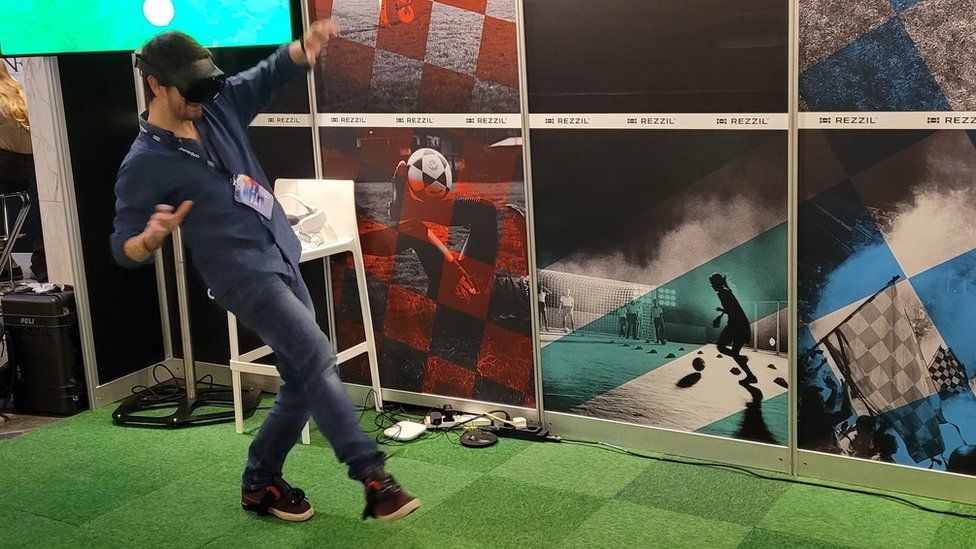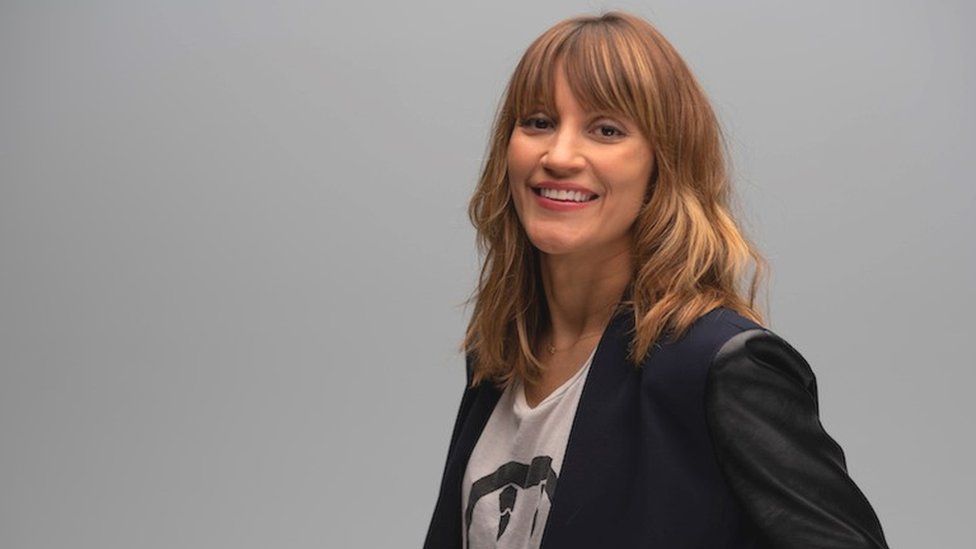When we look back 50 years from now, it’s likely that the 2D Internet we’re all using now will seem laughably archaic.
Not only will the Internet no longer exist behind a screen, but it is likely that we will interact with it in a different way.
We will manipulate objects using augmented reality (AR), explore virtual reality (VR) worlds, and combine the real and the digital in ways we cannot currently imagine.
And what will this mean for the world of work? We are already moving away from the nine-to-five commute and away from the traditional office environment. This is thanks to two years of quarantine due to the pandemic and a new love or tolerance for virtual meetings.
So, would the next logical step be to work in a metaverse, a planned virtual universe where 3D images of everyone walk, talk and interact with others?
The metauniverse has become an overhyped term, so it’s important to note that it doesn’t actually exist yet. And even those invested in the concept disagree about exactly what it will look like.
Will competing virtual worlds connect across competing technologies in a way that simply isn’t happening now? Will we spend more time there than in the real world? Will we need entirely new rules to govern these new spaces?
None of these questions are yet answered, but that hasn’t stopped the flurry of interest and hyperbole as firms see a new way to make money.
We’ve seen businesses open up in new metauniverse worlds, from Meta’s Horizon Worlds to games like Roblox and Fortnite, and newly created lands like Sandbox and Decentraland.
Meanwhile, Nike now sells virtual sneakers, HSBC owns land in the Sandbox, and Coca-Cola, Louis Vuitton and Sotheby’s have a presence in Decentraland.
The term metauniverse was coined almost 30 years ago by writer Neal Stevenson. In his book “Snow Crash”, the hero finds a better life in the world of virtual reality.
Perhaps the boldest step to turn this fiction into real technology was made in October 2021. That’s when Facebook announced it was changing its name to Meta and began investing billions of dollars in becoming the first company in the metaverse, a vision largely driven by its founder and CEO Mark Zuckerberg.

However, this huge investment has caused consternation among shareholders, some of whom have recently expressed concern that that the firm is spending too much money on VR.
A report by the website The Verge last October, which claimed to have reviewed internal meta notes, said that the Horizon Worlds platform had many bugs and was used by employees.
Herman Narula, chief executive of Improbable, a firm that develops software to create a metauniverse and author of a book called Virtual Society, is not convinced by Zuckerberg’s vision.

“Why do we need an office in the metaverse that looks like our real office?” he says. “The point of creative spaces in new realities is to expand our experience, not just recreate what we already had in the real world.
“But I think there’s going to be a lot of vacancies in the metaverse — we’re going to need moderators, for example.”
The moderating—or controlling—aspect of the metaverse is controversial, not only because it’s technically difficult to keep track of the potentially billions of avatars chatting in a virtual world, but also because of the vast amount of data these avatars can generate along the way.
A study conducted by Stanford University showed that just 20 minutes in virtual reality provides over two million unique recordings of body movements, a new rich data stream for companies.


New Tech Economy is a series about how technological innovation is shaping the new economic landscape.

Alex Rice, co-founder of the online security company HackerOne, believes that a lot of thought needs to be put into the design of the metaverse before any firm would even consider letting their employees loose in it.
“Imagine something innocuous, like talking about the cooler in the office,” he says. “Imagine this happening in a fully controlled metauniverse environment, it would certainly have drastic consequences.
“People can be fired outright for saying what they believe is a private, informal conversation with a colleague that is now subject to mass corporate surveillance.”
Tom Ffisk, editor of the tech newsletter Immersive Wire, thinks it’s too early to start thinking about working in the metaverse.

“Discussion of the metaverse is still fraught with difficulty, and the definition is still tenuous and debatable,” he says. “While the term itself is debated and has no clear definition, it is difficult to say whether we will be operating in a metaverse in the future.”
Although no one is able to understand what the metaverse is, there are some positive market predictions about its value. McKinsey suggests with a market value of $5 trillion (£4.2 trillion) by 2030, while a colleague at the consulting company Gartner predicts that by 2026, a quarter of the world’s population will spend at least one hour a day in the metaverse.
Matthew Ball, chief analyst at research firm Canalys, disagrees – he predicts that most current business projects in the metaverse will be closed by 2025.
He believes that firms need to consider whether they really need a presence in the metaverse, or whether they are simply using technology for technology’s sake.
“Not every business needs a VR headset to remotely greet avatars of colleagues or visualize virtual models,” says Mr Ball. “Not every business will need virtual reality headsets for meetings. As powerful and engaging as virtual reality is, Zoom and Teams calls offer nearly seamless alternatives that can be less cumbersome.”
Tiffany Rolfe is the Chief Creative Officer of digital branding company RGA. She and some of her team were already working in the metaverse.

The firm created a virtual football stadium in Fortnite for phone giant Verizon during the pandemic, and they also worked with Meta to create a music world in Horizon Worlds.
“People who normally design on a computer have to put on headsets and work with builders from all over the world,” says Ms. Rolfe.
And with new work methods come new considerations, such as how long employees should wear a headset. “My team had probably two hour breaks when it happened.” she says
The fact that people are already working in virtual reality worlds suggests that the metaverse may well have a future as a workplace, but the jobs that exist there will likely be very different from the ones we do in the real world.
And anyone hoping to replace their daily commute with a headset will likely have to wait years before that becomes a (virtual) reality.

